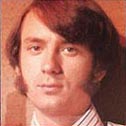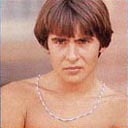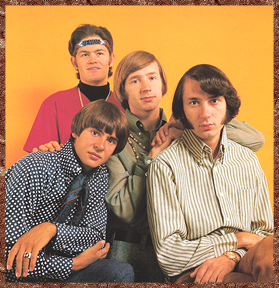

| 
|  |
 Monkees 2001 Concert Tour Photos - Courtesy of SheLovesTork
Monkees 2001 Concert Tour Photos - Courtesy of SheLovesTorkHeadquarters
The Monkees spent two months making their next album Headquarters. On January 16, 1967, The Monkees entered Goldstar Studios to cut their debut album as a full-fledged group. Chip Douglas was also on hand (former member of The Turtles) as producer. The songs that The Monkees contributed were "You Told Me," "No Time," "For Pete's Sake," "You Just May Be The One," and "Randy Scouse Git." The album was a commercial and artistic success.
"I listen to it now and it sounds like a pretty good kids' garage album," says Peter Tork, the Monkee to whom Headquarters meant the most. "Nobody was a slouch. You don't hear good, sophisticated musicians at every post, but that's not the point of a bunch of kids getting together and playing music. The whole point of a band is that you get something that comes out of who's there. That's the difference."
Within two weeks of it's release, Headquarters hit number one on Billboard magazine's album chart. Mike was trying to maintain the integrity of the group. Even though they had won their musical independence, the press and public believed that they were incapable of generating their own music. Despite all of this, Headquarters is one of The Monkees career highlights.
Side Notes:
Outside of the continental United States, Micky's "Randy Scouse Git" (English slang for "lecherous Liverpudlian idiot") was issued as a single under the less offensive "Alternate Title," on July 1, 1967. The song would eventually make the Top 10 in England, Ireland, Denmark, New Zealand and Australia).
Producers/creators Raybert were so taken with "For Pete's Sake" that the song was quickly adopted as the closing theme for The Monkees' second season, which premiered on September 11, 1967.
I asked Frank Zappa if he would guest on the show.  He said, "I'll only come if I can have your part." And I said "Well, that's fine. If you'll come on the show and be me, then I'll be you." So I dressed him up in a shirt and gave him a wool hat so he'd look like me. My relationship with Zappa was never fully formed, so I have a distant love and great respect for the man. He was very kind. When people hated us more than anything, he said kind things about us. He was talking about the music, about how well it was produced and, "Did you hear that on the new Monkees album?" He offered to teach me to play lead guitar one time. It was an incredibly groovy thing to do. He worked with me for hours, but I never learned.
He said, "I'll only come if I can have your part." And I said "Well, that's fine. If you'll come on the show and be me, then I'll be you." So I dressed him up in a shirt and gave him a wool hat so he'd look like me. My relationship with Zappa was never fully formed, so I have a distant love and great respect for the man. He was very kind. When people hated us more than anything, he said kind things about us. He was talking about the music, about how well it was produced and, "Did you hear that on the new Monkees album?" He offered to teach me to play lead guitar one time. It was an incredibly groovy thing to do. He worked with me for hours, but I never learned.
Pisces, Aquarius, Capricorn & Jones Ltd.
The Monkees fourth album, Pisces, Aquarius, Capricorn & Jones Ltd. was released November 14, 1967. The album was not as "pure" as their Headquarters album, but maintained the group-oriented, musical blend. Even though they had record-setting, sold-out concerts during the summer of 1967, resentment for the group continued. Disharmony within the group also started to happen. Each of The Monkees wanted to do their own thing after this album, producing songs the way they wanted. What increased the tension was the recording of the PAC & J Ltd. album. A large portion of the album had to be recorded during the 1967 summer tour. Instead of having a central place for the album recording, it was done in several cities across the United States. Within two weeks of the album's release, it hit number one and remained for 47 weeks in the Top 200. "Pleasant Valley Sunday" became The Monkees fourth single. It was a departure from the teen-idol type singles before, singing about the "status-symbol land" in America. The B-side of PVS was "Words" and received plenty of air play. "Daydream Believer" was was released before the album and oddly was not included on the album. PAC & J Ltd. would be the last attempt at group music-making for The Monkees. This was also their last album project with producer Chip Douglas.
The Birds, The Bees & The Monkees
The Birds, The Bees & The Monkees was their next album. Peter, Micky, Davy and Mike did their own type of music on this album. Each of them had their own songs and arrangers, producing their own sessions. "Daydream Believer" was included on this album and brought them back to the top of the charts. This was a smart move because their second season was starting (September 1967).
The B-side of "Daydream" was the group's "Goin Down." This song did not appear on the album. It was an unusual jazz-blues track composed by song-writer Diane Hilderbrand and The Monkees. "Valleri" became the follow-up single. It was previously cut by Boyce & Hart during the recordings of the first two albums. It was aired on an early episode of The Monkees. It was taped and played on several radio stations a year prior to the 1968 release. It was a re-recording of the original with added horns, and flamenco-styled guitar. Even though "Daydream" acheived number one status, The Birds, The Bees & The Monkees was the first album for the group that did not hit number one. The only song on the album to feature more than one Monkee is Mike's "Auntie's Municipal Court." The album went gold after being released in April of 1968.
The next single, "D.W. Washburn" with B-side "It's Nice To Be With You" was released just as The Monkees television series ended in 1968. The single barely made the Top 20 in Billboard. By this time, ratings had fallen to a point where NBC executives decided to cancel the series. Even though the series was cancelled, they were now in the middle of their first feature film HEAD.
HEAD
The completion of the movie HEAD and it's soundtrack were done during the first half of 1968. The Monkees were no longer doing the television series, but the show was still in reruns on NBC and records will still selling. You would think that The Monkees would have nothing to lose doing the movie and soundtrack, but they did. Bert Schneider and Bob Rafelson were the filmakers. An up and coming actor named Jack Nicholson was also on hand to help write the script. What they were hoping for was something unique, not just another Monkees episode. They were hoping to attract an older audience with the movie, not just the young Monkees fans. The movie was too confusing, trippy, "way out", and "heavy" for the young audience. The young fans could not understand why Peter, Micky, Davy and Mike were mocking themselves. The older, hipper audience that they were hoping to attract regarded The Monkees as a teen band and didn't bother seeing the movie. Another problem was the marketing of the film. Little or no mention was made of The Monkees. What the movie did was basically destroy The Monkees image. On purpose or by accident - who knows? The soundtrack included "Porpoise Song" (Theme From HEAD) , a Goffin/King song that was compared to The Beatles song "Strawberry Fields Forever." It was released as a single in October 1968 with "As We Go Along" for the B-side. The single only made it to number 62 in Billboard, making it a commercial failure by group standards. Mike's "Circle Sky" was also used in the movie for a live concert appearance. This was the first time they had performed as a group in almost a year. The movie was released in November 1968 and was a box office disaster. Over the years, HEAD has become a cult classic. There are always new and old Monkees fans that will want to see the strange, far out movie.
The idea of the Head movie was that we had to break out of  the black box which represented life. We all had different ways of getting out. Mike's way was to talk his way out, because he's the business man. Peter, Hare Krishna, water beds, brown rice, was to sort of levitate yourself out of the box. Micky was a jokester, and I had to fight my way out because I was always feisty. Being shorter than most, I always had to push my way forward. I had to let people know I was there.
the black box which represented life. We all had different ways of getting out. Mike's way was to talk his way out, because he's the business man. Peter, Hare Krishna, water beds, brown rice, was to sort of levitate yourself out of the box. Micky was a jokester, and I had to fight my way out because I was always feisty. Being shorter than most, I always had to push my way forward. I had to let people know I was there.
33 1/3 Revolutions Per Monkee
In December 1968, The Monkees completed their latest project 33 1/3 Revolutions Per Monkee for NBC. The show was produced by Jack Good, producer of Shindig ! Even though the show had it's problems, there were moments in the show that included Little Richard, Fats Domino and Jerry Lee Lewis playing grand pianos stacked on one another. When the taping completed for the show, Peter announced that he would be leaving the group.
Instant Replay
The Monkees were now a trio. Micky, Davy and Mike released Instant Replay in February 1969. "Through The Looking Glass", "You And I", and "While I Cry" were notable songs on the album. They also went on a concert tour that included a seven piece band. In September 1969, The Monkees series went into Saturday morning reruns on CBS and moved to ABC beginning in 1972.
The Monkees Present
The Monkees Present was released in October 1969. This would be their last recording as a trio. It was to be a double album featuring the group members' individual studio efforts. By this time, Screen Gems had little interest or faith in the group in regards to record sales. Because of that, little money was spent on the album. Mike's "Listen To The Band" and "Good Clean Fun" were released earlier in the year, but did not have the chart success of the previous singles. Mike made a trip to Nashville where he recorded with many of Tennessee's finest artists. "Listen To The Band" showed that Mike was attempting to combine country and rock music early on. Micky's original "Mommy And Daddy" was put on the shelf. The lyrics were basically a series of inflammatory questions for pre-teens. The song would have been too provocative for a single. Micky was hesitant about rewriting the song, but he did. The song now centered on the condition of the Native Americans. At this time, Micky realized that no one was playing to the young listening audience. He had a young fan come up to him with tears in her eyes after a concert. She asked him why they didn't record any of the "good old songs", ones that you could dance to.
I realized what had happened and what The Monkees were all about. They were what a first-grade teacher is to a child learning math. You can't teach a kid to multiply until you teach him to add. The reason The Monkees were so successful was because we filled a gap. The Beatles and all the other groups were trying to appeal to a sophisticated audience. Nobody was playing to the kids. We gave them something to listen to."
Changes
By 1970 The Monkees were also having their problems connecting with the younger audience. The budget for recording and concert audiences diminished. This is when Mike saw his chance to quit the band and work on a solo career. Micky and Davy stayed together, recording the album Changes. The single "Oh My My" was released. Sometime after this, Micky and Davy realized The Monkees were over and were released from their contracts and set free of any Monkees obligations. Micky and Davy did join their ex-producer/songwriters Boyce and Hart for a tour and album Dolenz, Jones, Boyce and Hart in 1974. They toured under the banner "The Greatest Golden Hits Of The Monkees Show."
20th Anniversary Tour
In 1975, Peter, Micky, Davy and Mike met to discuss working together as a group. Conflicting ideas and attitudes prevented them from making this happen. Even though the band failed to make a decision to work together in 1975, they were not totally against working together again. In 1985, Peter met with David Fishoff (concert promoter) and the former band members. They decided to reunite for a 20th Anniversary tour in 1986, having one of the biggest tours of the year. The band's reputation was also given a boost in 1986 when MTV aired a Monkees "marathon", showing the original series. All of this caused a new and old interest in The Monkees. Peter and Micky's "That Was Then, This Is Now" was released as a single and reached the top 20. The complete Monkees Catalog was now available on Rhino, as well as six of the original albums reappearing on Billboard. There was one set-back with all of these events. Since they did not know how long the tour would run, Mike was not able to continue with the tour. His time was spent on running his home video production company and managing his late mother's estate (inventor of Liquid Paper). He was able to join Peter, Micky and Davy for an MTV Christmas video. Mike also performed at the Greek Theatre in Los Angeles in 1986.
Pool It!
The 1986 Anniversary tour continued into 1987. Even though The Monkees hadn't recorded an album since the 1974 Dolenz, Jones, Boyce and Hart, Rhino had an interest in a new Monkees album. Pool It ! was recorded and the upbeat single "Heart and Soul" was released as a single in July 1987. There was a video that was to accompany the single, but was never shown on MTV. Apparently MTV refused to show the video because The Monkees did not appear at a MTV Super Bowl party earlier in the year. Even though the "Heart and Soul" single only made it to number 87 on Billboard, The Monkees were happy with Pool It !. It managed to outsell the albums that came after The Birds, The Bees & The Monkees. The Monkees had little success with the concerts they had remaining. Attendance was down from the concerts they previously did in 1986. They then disbanded as members to pursue other interests. Attempts to create the New Monkees around Marty Roos, Larry Saltis, Jared Chandler and Dino Kovas in 1987 were aborted. The group would not tour for another seven years.
30th Anniversary Tour
The Monkees were approaching their 30th anniversary 1996. They were hoping that because the 20th Anniversary Tour was successful, that the 30th would be just as successful or even more so. To help bring a close working relationship, Ward Sylvester was hired to represent each group member. The group was also hoping to work jointly on another album. JUSTUS was the first recording by the original band (including Mike) for over 20 years. The recording was written and produced by The Monkees and was recorded June-August 1996. "You and I" is one of the hi-lights of the album/CD. It is a more polished version than the previous version included on the Dolenz, Jones, Boyce & Hart album. Another notable song on the CD is the romantic, sentimental "It's Not Too Late." Mike did not participate in the 30th Anniversay U.S. tour. He did join Peter, Micky and Davy for a group documentary in 1996. He also joined them for an ABC special for television and a British tour in 1997.
Although The Monkees were once despised by critics, the group is now regarded as one of the best American pop groups of it's era.
Make sure to check the official sites of Peter Tork, Micky Dolenz,
Davy Jones and Mike Nesmith for up-to-date information.
 PTsgirl Shoe Suede Blues Photos - Club 66
PTsgirl Shoe Suede Blues Photos - Club 66

| 
|


